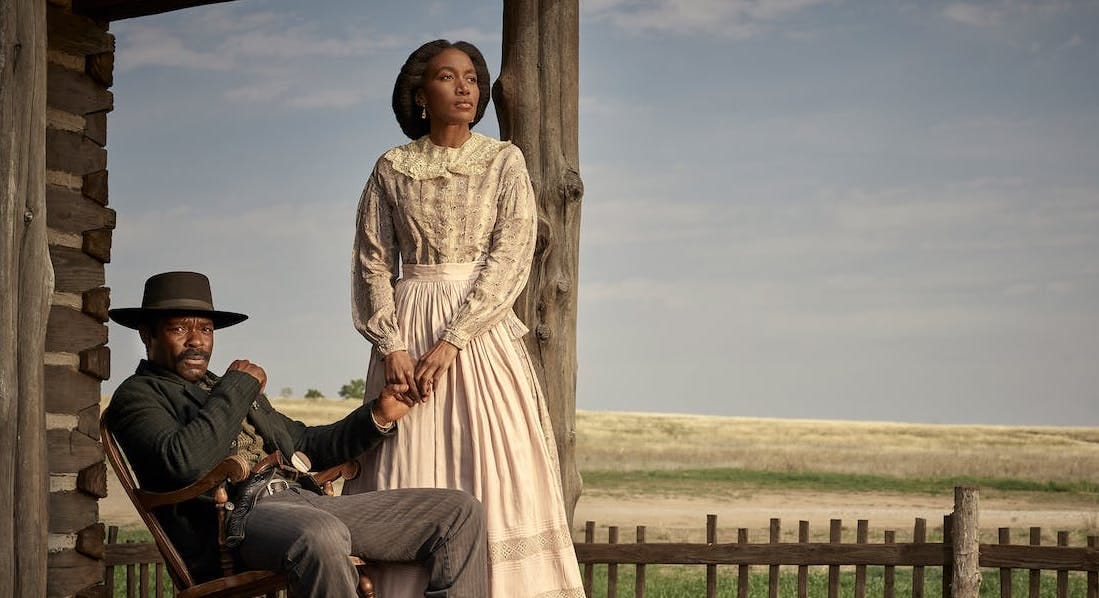When we talk about the legends of the Old West, Bass Reeves’ name often takes center stage—and rightfully so. He was one of the first Black U.S. Deputy Marshals west of the Mississippi, capturing outlaws and making history. But behind this fearless man was a woman just as remarkable, though often overlooked—his wife, Nellie Jennie.
Nellie wasn’t just “Bass Reeves’ wife.” She was a woman of deep strength, warmth, and resilience. Her story is full of hardship, love, and quiet heroism. Let’s take a closer look at the life of Nellie Jennie, the woman who held the Reeves family together during some of the hardest times in American history.
Who Was Nellie Jennie?
Nellie Jennie was born into slavery in 1840 in Sherman, Texas. Her mother, Betty Haynes, was also enslaved. Not much is documented about Nellie’s early life, which is sadly the case for many people born into slavery. But one thing is clear—Nellie grew up in an environment that demanded strength and survival.
She was enslaved by Colonel George Reeves in Grayson County, Texas. During this time, she witnessed and experienced the deep cruelty that came with being treated as property. Despite this, Nellie found a way to stay strong, carrying hope in her heart for a life beyond the chains of slavery.
How Did Nellie Jennie and Bass Reeves Meet?
Their paths crossed during their years of enslavement. Both endured the same brutal system and, in the midst of that darkness, found something rare and beautiful—each other.
Their connection wasn’t just based on romantic love. It was a partnership built from shared pain and survival. It’s believed their bond grew stronger during the Civil War, when Bass was forced to fight for the Confederacy. After escaping and eventually joining the Union side, Bass returned, and the two would go on to build a life together once slavery was abolished.
Life After Emancipation
Freedom came in 1865, but it didn’t mean life suddenly became easy. Nellie and Bass had to adjust to a new world where survival was still a daily struggle—just in a different form.
They settled in Van Buren, Arkansas, where Bass first worked as a farmer and horseman. Nellie, on the other hand, was the rock of the household. She ran the home and took care of their growing family while Bass transitioned into law enforcement.
In 1875, Bass became a U.S. Deputy Marshal. This meant long stretches away from home, dangerous assignments, and very little stability. But Nellie never wavered. She managed their household, cared for their children, and kept everything together while her husband was out hunting down fugitives.
What Was Family Life Like for Nellie?
Nellie gave birth to fourteen children—yes, fourteen! Some of the known names include Sarah, Robert, Harriet, and Georgie. Can you imagine raising fourteen kids mostly on your own while your husband is chasing outlaws?
She did more than just feed and clothe them. Nellie gave them love, structure, and guidance. Even when Bass was gone for months at a time, Nellie kept their home filled with care and stability. She was the emotional backbone of the Reeves family.
Her work made it possible for Bass to do his job with focus and courage. He knew his family was in good hands, thanks to Nellie’s strength and devotion.
What Was Her Role in Bass Reeves’ Career?
We often hear about Bass Reeves’ heroic stories, but rarely do we hear how he was able to pull it all off. The truth is—he couldn’t have done it without Nellie.
Being a Deputy U.S. Marshal was dangerous work. Bass was constantly putting his life on the line. But knowing that Nellie had the home front handled gave him a sense of peace and security. He had the freedom to take risks because he trusted Nellie completely.
She wasn’t just a wife. She was his teammate, his partner, and his silent strength.
What Happened in Her Final Years?
Nellie passed away on March 19, 1896, in Fort Smith, Arkansas. She was 56 years old. At the time of her passing, she had already witnessed so much—the end of slavery, the Reconstruction era, and her husband’s rise to fame.
Her death deeply affected Bass. Though he continued to serve as a lawman, those who knew him said he was never quite the same. He lost more than a spouse—he lost his life anchor.
Why Should We Remember Nellie Jennie?
Nellie Jennie’s story is important not just because she was married to someone famous. Her life is a window into the experience of countless Black women who helped shape American history without ever getting their share of credit.
She endured slavery, raised a huge family, and supported one of the most important figures of the American West—all while staying in the shadows. But Nellie’s strength helped make Bass Reeves’ legendary career possible.
Her legacy is not written in newspaper headlines or history books. It’s written in the lives of her children, in the home she held together, and in the courage she passed on to those around her.
Why Don’t More People Know About Her?
One of the sad truths about history is that it often forgets the women in the background—the ones who held it all together while others took the spotlight. That’s what happened with Nellie Jennie.
For years, her name was barely mentioned in stories about Bass Reeves. But lately, historians and storytellers are finally shining a light on the women behind the legends. And Nellie’s name deserves to be right up there.
What Can We Learn from Her Story?
Nellie’s life teaches us that you don’t have to be in the spotlight to make a big impact. She was never a law officer. She didn’t ride horses or arrest criminals. But her quiet, consistent love and strength made history just the same.
She showed us the power of love during hard times. The strength of a woman raising a family against all odds. The importance of believing in your partner’s purpose. And the value of emotional labor—the kind that doesn’t get medals but keeps the world running.
Nellie Jennie may not have worn a badge, but she was a hero in her own way. Her name deserves to be remembered right alongside Bass Reeves. Not as a side character—but as the heart of the story.




/socialsamosa/media/media_files/2zHb3sGz3BcGQQrVtOoh.png)





